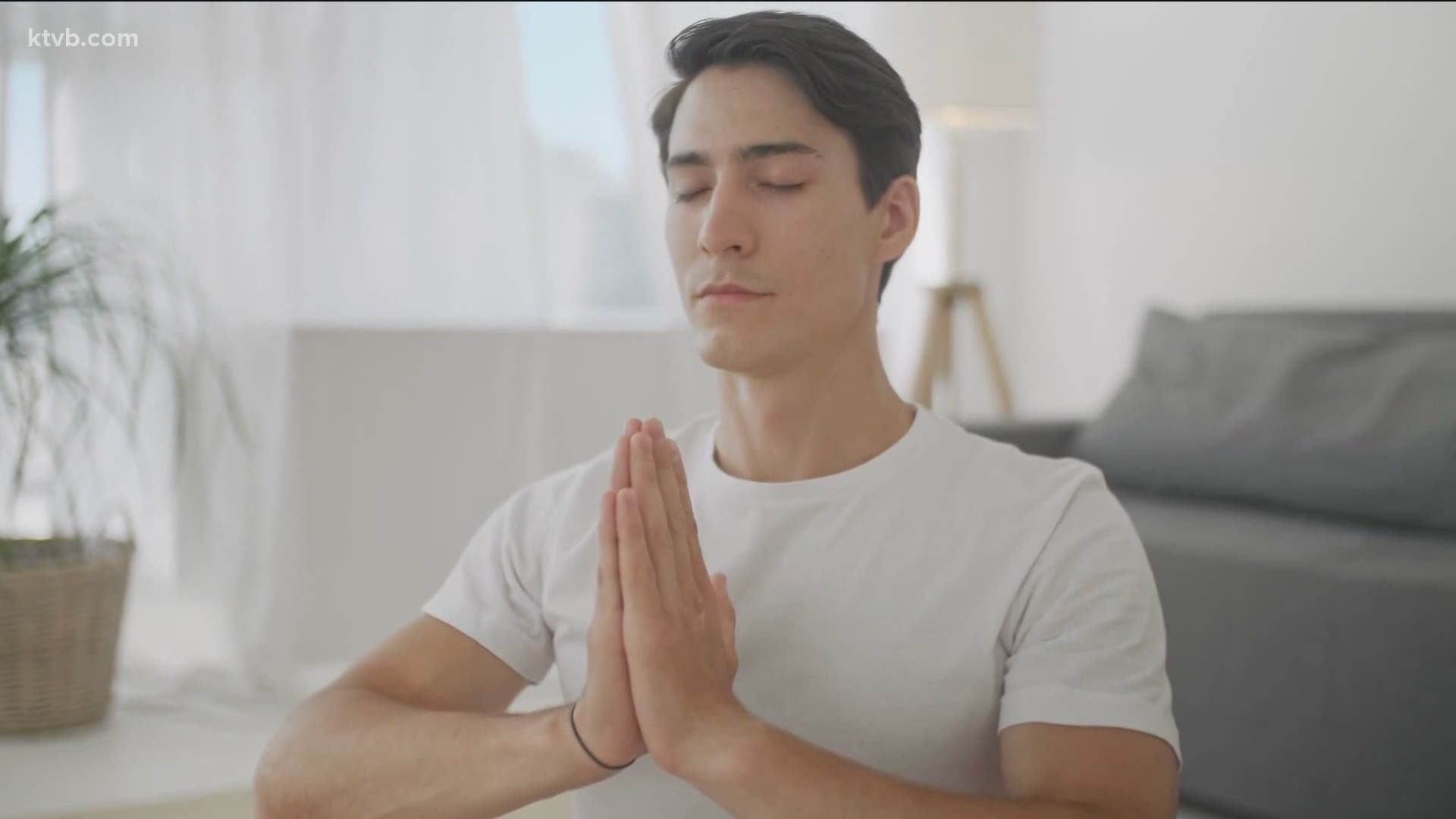BOISE, Idaho — Meditation can help ease symptoms of many health conditions and overall improve quality of life and mindfulness.
Optum Idaho’s Deputy Director Casey Moyer sat down with KTVB to answer questions and explain more about the benefits of meditation.
What is meditation?
Moyer: “When people think of meditation they may think of sitting with your legs crossed and your eyes closed, but there’s more to it than that. Meditation is a group of techniques for focusing attention and letting your thoughts go. The intent is to become more aware of yourself and your emotions… it’s a legitimate tool that mental health providers use with their patients and it’s something that just about anyone can learn.”
What are some of the health benefits of meditation?
Moyer: “It can be helpful with managing stress. As part of the cognitive science branch of psychology, research about meditation is ongoing and it may be helpful for conditions including physical pain – both new and ongoing, depression, anxiety, insomnia, and trouble with concentrating.”
How is it normally done?
“There are different styles of meditation but they share some common tenets. Find a quiet location. This can help prevent outside distractions. If you live in a noisy place or it’s difficult to find a quiet one, use some earplugs. Assume a comfortable position. This may be sitting, laying down, or standing depending on your practice. Some types of meditation may include some movement. Focus attention. You may focus on a mantra, an object, or your breathing. Have an open mind. Let your thoughts come and go without letting them distract you. Don’t suppress or judge them, just let them happen and then regain your focal point."
Are there precautions some people should take?
“Meditation is a skill that takes practice. It’s considered safe for most healthy people, but some movements or positions can be difficult, so if you have physical limitations it’s important to let your doctor know that you’re meditating. They can help ensure that you’re coordinating your care in a way that’s effective. Don’t use meditation in place of medical care. This can be a great adjunct, but it shouldn’t replace the healthcare that your provider is currently offering. Lastly, don’t be afraid to reach to someone who is a qualified teacher, be sure that you’re trained in a style that works for you. It’s especially important that if you’re doing movements to do them correctly to avoid injury."
Watch more 'Hello Idaho':
Watch our latest conversations about mental health in our YouTube playlist:

